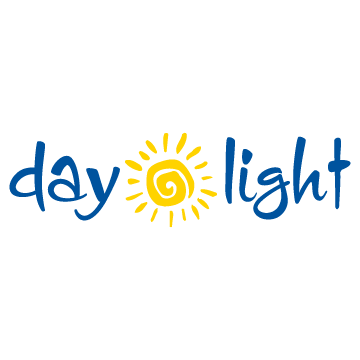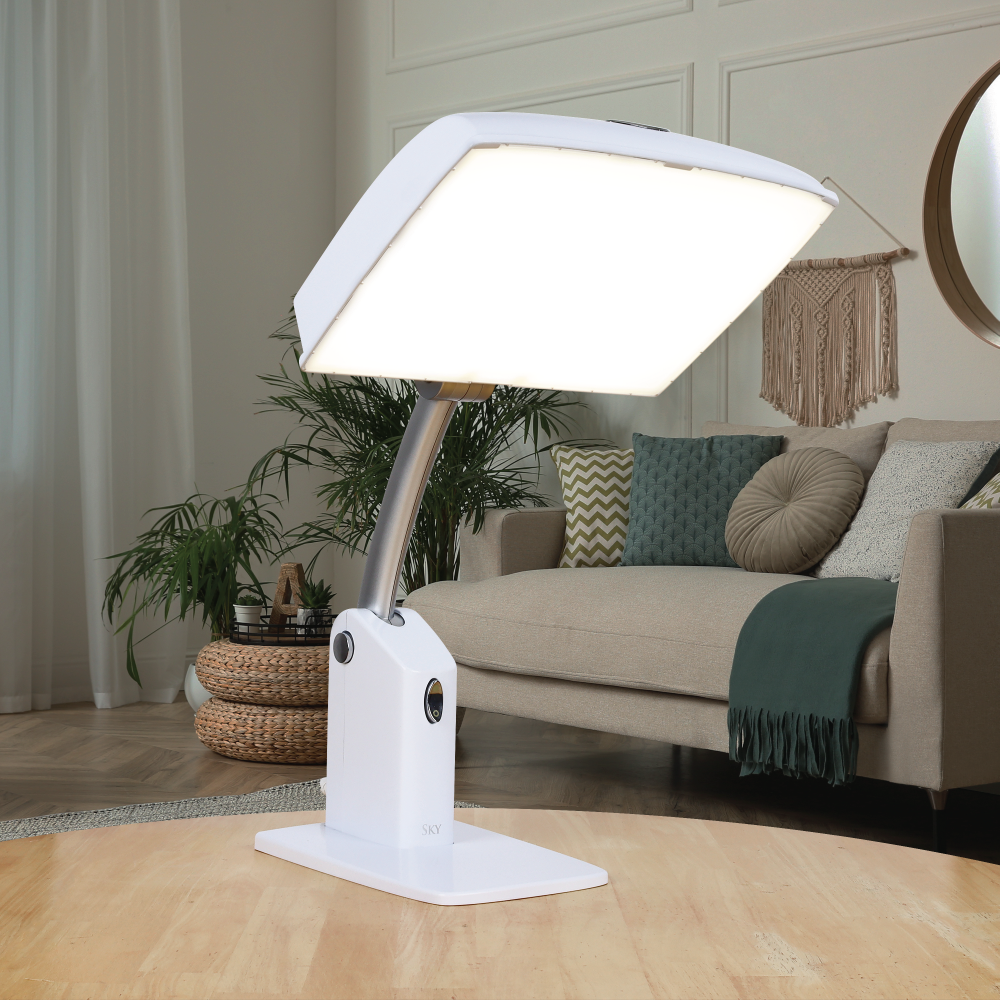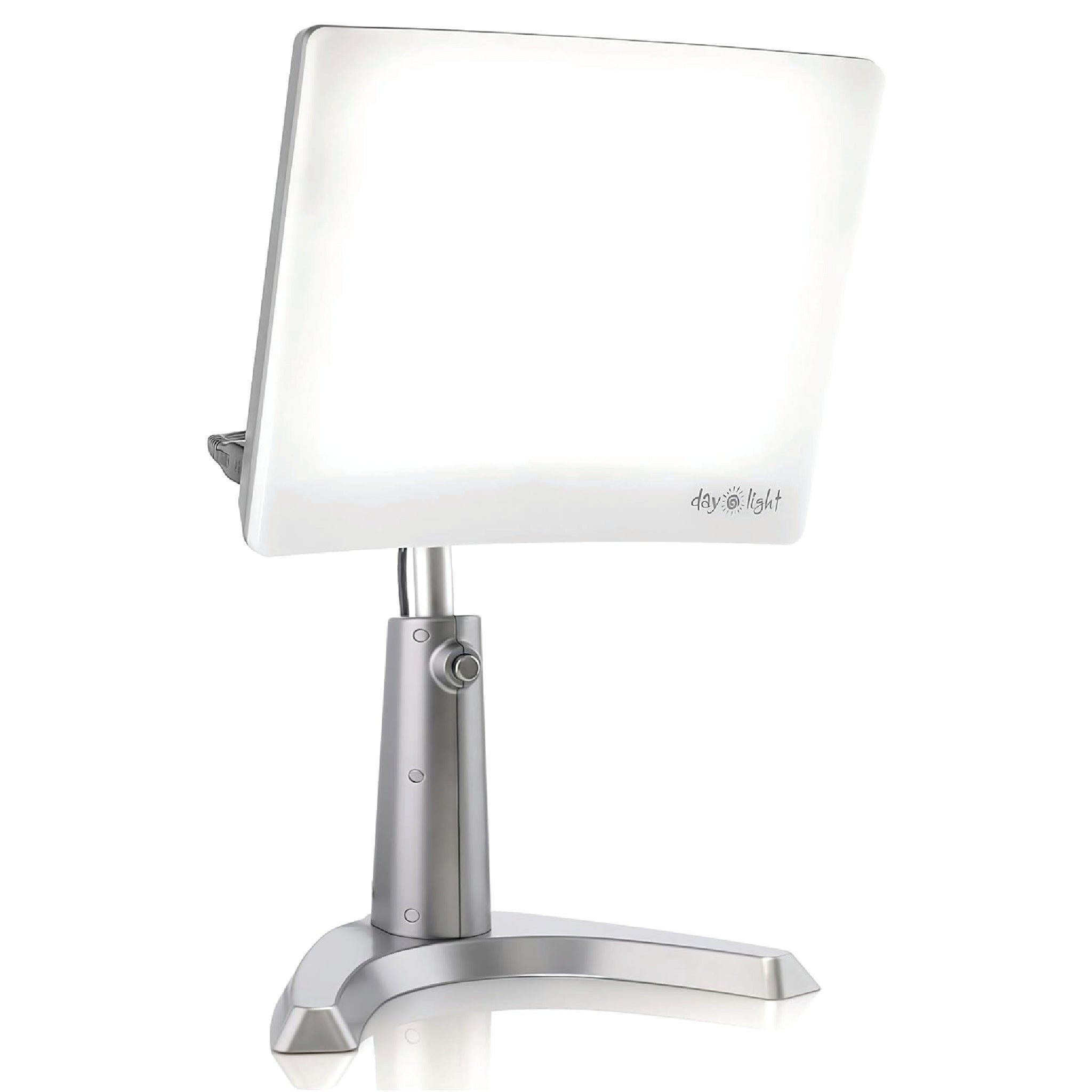Sunlight is vital for life, from keeping us warm to promoting the growth of plants. But did you know that most Americans spend about 90% of their time indoors? Although this amount of time spent indoors has become standard in today's society, sunlight deprivation can have detrimental effects.
It's essential to find the right balance to avoid overdoing sun exposure but still getting enough sun to maintain:
- Adequate vitamin D levels
- Immune function
- And the mental health benefits.
The article below examines the benefits of sun exposure, how much is too much, and alternatives to sun exposure.
Do We Need Exposure to the Sunlight?
Humans need sunlight exposure to maintain optimal health. In fact, lack of sun can have several adverse health effects.
Researchers have discovered several benefits of sun exposure and how sun deprivation is detrimental to our well-being. Sun exposure affects several different systems in the body. Additionally, it affects processes such as sleep, mood, and energy level.
Benefits of Sunlight
Sun exposure has several benefits, including those listed below.
Helps promote vitamin D production
One of the most well-known benefits of sun exposure is vitamin D production. When the skin is exposed to the sun's ultraviolet rays, it triggers a physiological reaction that helps the body produce vitamin D. Adequate vitamin D levels are needed for:
- Healthy bones
- A strong immune system
- And optimal energy levels, among other things.
May help lower blood pressure
Sun exposure may play a role in maintaining healthy blood pressure levels. A research article in Blood Purification stated that exposure to sunlight triggers the release of stored nitrogen oxide levels. This process dilates the arteries, lowering blood pressure.
Boosts certain neurotransmitters
Exposure to sunlight cues areas within the retina to trigger the release of the neurotransmitter serotonin. Neurotransmitters, such as serotonin, play a role in various functions, including:
- Energy level
- Mood
- And sleep-wake-sleep-wake cycle.
May protect against certain diseases
Increased vitamin D levels might protect against certain diseases. For example, a research article in Environmental Health Perspectives found high levels of vitamin D may decrease the risk of developing multiple sclerosis. However, additional research is needed to provide definitive evidence of this link.
What Happens if You Don't Get Enough Sunlight?
If you do not get enough sunlight, it can negatively affect your health and overall well-being. Adverse effects of lack of sunlight may include the following:
Irregular sleep patterns
Sun exposure affects the production of two hormones, melatonin and serotonin, which affect sleep patterns. Exposure to the sun in the morning reduces the amount of melatonin produced, which helps you feel more awake.
However, your body's internal circadian rhythm may be affected if you do not get enough sun exposure. For instance, a lack of sun exposure may decrease the serotonin produced. As a result, this may disrupt your normal sleep-wake cycle.
This can leave you feeling sleepy during the day. It can also make it difficult for you to fall asleep at night or have disrupted sleep.
Depression and Anxiety
Lack of sun and depression are linked. According to the Mayo Clinic, decreased sun exposure may cause a drop in serotonin levels. Serotonin plays a role in mood. If serotonin levels decrease, it can lead to depression or anxiety.
Additionally, sunlight exposure may increase the production of other hormones, which may help combat depression. For instance, a research article in Journal of the American College of Nutrition found that human skin produces beta-endorphins in response to sunlight exposure. These are peptide hormones that naturally promote a feeling of well-being, boost the immune system, and promote relaxation.
Decreased Bone Density
As discussed above, sun exposure can help promote the production of vitamin D, which helps maintain strong bones. Adequate levels of Vitamin D also help the body absorb collagen and calcium, which also help keep bones strong.
Low vitamin D levels can increase a person's risk of decreased bone density, which increases the chances of fractures. Studies show that people with low vitamin D levels have a higher risk of lower bone density and bone loss. Loss of bone density increases the risk of osteoporosis and fractures.
Weakened Immune System
Your immune system helps you fight off infection. Several factors affect your immune system, including your sleep and vitamin D levels. If you lack sunlight, it may affect vitamin D levels, leading to a deficiency. It may also affect your sleep-wake cycle, making you sleep-deprived and decreasing your immune system function.
When your immune system does not function as well as it should, you are more susceptible to infections, such as colds and flu. For example, this meta-analysis included a study with nearly 19,000 participants over 6 years. The study indicated that those with lower vitamin D levels were more likely to self-report upper respiratory tract infections.
Weight Gain
One of the possible adverse effects of lack of sun exposure you may need to be aware of is weight gain. Lack of sun may cause an increase in weight gain for a few reasons.
For instance, inadequate sun exposure may decrease energy, which affects metabolism. This may reduce exercise and increase food intake to compensate for low energy.
In addition, the adverse effects of a disrupted sleep-wake cycle can also lead to weight gain. For instance, lack of sleep also affects hormones that control appetite, including leptin and ghrelin. Leptin helps you feel full, and the production of this hormone may decrease if you suffer from sleep deprivation.
At the same time, ghrelin (your hunger hormone) may be produced in excess when you do not get enough sleep. This combination leads to feeling hungry and not satiated, leading to possible weight gain.
Exposure to the sun's ultraviolet rays also helps with nitric oxide production. This affects metabolism and keeps it working optimally.
Vision Problems
While looking directly at the sun can harm your eyes, a lack of sunlight can also negatively affect vision. For instance, inadequate exposure to sunlight may lead to an increased risk of nearsightedness, also called myopia. This 2021 study involved data from 9,171 elementary school students.
The study reported two conclusions:
- Children with less sunlight exposure had a higher risk of developing nearsightedness
- And sunlight exposure may have a protective effect.
How Much Sun Exposure Do You Need?
You don't need much sun exposure to get health benefits. In fact, most people only need about 10 to 15 minutes of sunlight daily. Most experts recommend getting sun exposure during midday when the UV rays are the most potent.
If possible, try to go outside during your lunch break to get about 15 minutes of sun exposure each day. However, if it's impossible to get sunlight during midday, any sun exposure is better than none.
Alternatives to Sun Exposure
It may not always be possible to get exposure to natural sunlight. Your work schedule or living in a place with mostly cloudy skies can make it hard to get enough sun. However, there are some things you can do to mimic the benefits of sun exposure, such as the following:

Bright light therapy
Using a bright light lamp or light box mimics exposure to sunlight. To provide the benefits, be sure to get a quality bright light lamp with the desired features, such as the correct brightness. For more information on bright light therapy, check out The Ultimate Guide to Bright Light Therapy.

Eating foods rich in calcium and vitamin D
Many experts recommend getting proper nutrients from the foods you eat instead of supplements. Eating foods rich in calcium and vitamin D can help promote strong bones and a healthy immune system. Foods high in vitamin D include fatty fish, such as salmon and trout, eggs, and fortified cereals.

Vitamin D supplements
Supplements may be an option if you do not get enough vitamin D from your diet. Vitamin D supplements are available as standalone supplements or are often included in a multivitamin. As always, it is best to talk to your healthcare provider before starting supplements. However, the Vitamin D recommendations for adults 19-70 are generally 15 MCG per day.

Exercise
Exercise can help promote better sleep, decrease weight gain, and boost mood. Try to get at least 30 minutes of regular exercise daily, including cardiovascular exercise such as:
- Brisk walking
- Biking
- Or strength training.
Conclusion
Sun exposure has several benefits besides increasing vitamin D production. For example, it can have a positive effect on circadian rhythms, mood, and energy levels. It may also promote the release of nitric oxide, which can help lower blood pressure.
Getting the benefits only takes 10 to 15 minutes of sun exposure daily. For those who can't get adequate sun exposure, bright light therapy, vitamin D supplements, and exercise can be beneficial.








Leave a comment
All comments are moderated before being published.
This site is protected by hCaptcha and the hCaptcha Privacy Policy and Terms of Service apply.